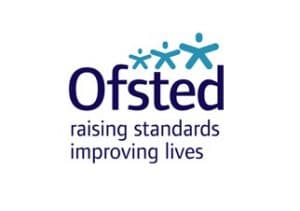There have been significant changes within children’s services at all levels in Thurrock, Ofsted has identified.
The Ofsted single inspection in 2016 found that services to children in Thurrock required improvement to be good.
However, since then the council has re-established a permanent children’s services senior leadership team and has restructured the services. Leaders have increased social work capacity and introduced a strength-based model of practice, supported by staff training.
"During this visit, inspectors identified some strengths and areas where practice is not strong enough. Senior leaders are aware of these strengths and weaknesses, and their development plan indicates that they have a clear understanding of what needs to be done to improve services," said the report.
Ofsted highlighted that an increase in referrals in recent months in Thurrock resulted in significant pressures, with caseloads increasing to high levels in some teams. Leaders have responded by increasing social work capacity in the assessment and family support teams which has made a noticeable difference, allowing workers to have more manageable caseloads and time to visit and support children and their families.
Inspectors noted:
- Social workers complete their assessments within the timescales expected by the local authority, and in some cases much more quickly to reflect the urgency for the child.
- Assessments are comprehensive.
- More recent planning demonstrates greater responsiveness to the changing circumstances of children and families.
- Children are seen regularly by their social workers and, when appropriate, efforts are made to see them alone.
- Children are supported to build trusting relationships with social workers.
- Effective information-sharing arrangements between agencies ensure that risks are communicated and partner agencies are included in assessment, planning and support arrangements for children.
- Social workers are alert to concerns about child sexual exploitation and use specific assessment tools appropriately to assess and manage risks.
However, child protection plans are variable with many being too general and lacking a specific purpose. A delay in the distribution of child protection conference minutes means that the social worker, professionals and parents do not have reference to information shared at conference to progress plans, other than their own notes.
The authority has recognised that escalation by child protection chairs has not been used effectively to raise concerns and drive improvements in practice. New processes have been devised, and there are plans to implement them.
Advocacy is not routinely available to support children to participate in their child in need or child protection plans or meetings.
Social workers report that managers are visible and supportive. They receive monthly supervision. Management oversight is evident on case records, however, its impact is too variable, with some managers often simply endorsing case records with a statement to say that they ‘agree’.
Performance management arrangements are in place and are used effectively by managers at all levels to informand proactively manage practice.
"The local authority has been successful in recruiting and stabilising a culturally diverse and permanent social worker workforce. Social workers informed inspectors that they like working for Thurrock local authority and that expectations about practice standards are clear. They have many opportunities for training, and personal development is actively encouraged," the report concluded.



